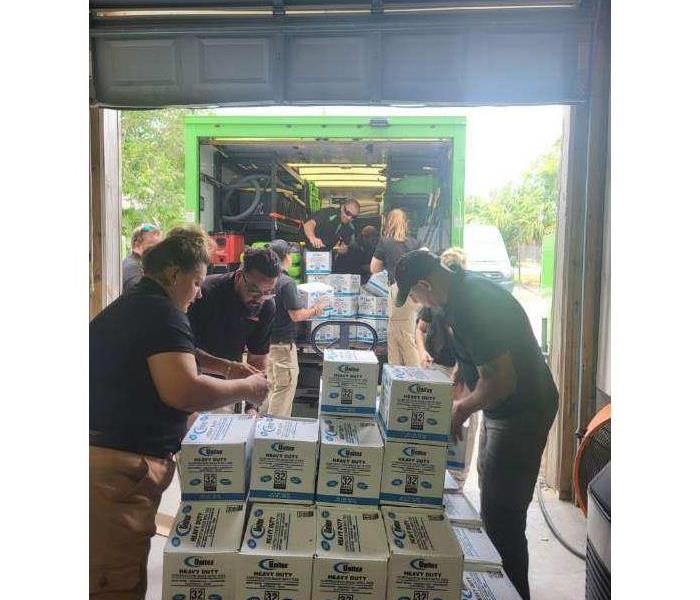Rental Property Water Damage: Landlord and Tenant Responsibilities
6/12/2024 (Permalink)
 We will outline the landlord and tenant responsibilities related to rental property water damage to help you navigate this situation.
We will outline the landlord and tenant responsibilities related to rental property water damage to help you navigate this situation.
Water damage in rental properties can present challenges for both landlords and tenants, as it involves understanding and fulfilling specific responsibilities to address the damage effectively. Knowing the roles and obligations of both parties is essential to ensuring timely and appropriate action in the event of rental property water damage. In this blog, we will outline the landlord and tenant responsibilities related to rental property water damage to help you navigate this situation with clarity and confidence.
Landlord Responsibilities
- Maintenance and Repairs: Landlords are generally responsible for maintaining the property in a habitable condition, which includes addressing issues related to water damage. The landlord must promptly repair any water leaks, plumbing issues, or structural damage that may lead to or result from water intrusion.
- Insurance Coverage: Landlords typically carry property insurance that covers structural damage to the rental property. In the event of water damage, the landlord's insurance may help cover the costs of repairs and restoration, depending on the policy terms.
- Professional Restoration: If the extent of the water damage requires professional restoration services, landlords are responsible for arranging and overseeing the restoration process. Engaging a reputable restoration company like SERVPRO® can help ensure thorough and efficient water damage mitigation and restoration.
- Communication: Landlords should maintain open communication with tenants regarding water damage issues, restoration plans, and any necessary precautions during the restoration process. Clear and timely communication can help minimize misunderstandings and streamline the restoration efforts.
Tenant Responsibilities
- Reporting Water Damage: Tenants have a responsibility to promptly report any water damage or signs of potential water intrusion to the landlord or property management. Early detection and reporting of water damage can prevent further damage and expedite the restoration process.
- Taking Precautions: During a water damage incident, tenants should take necessary precautions to protect themselves and their belongings. This may include safely evacuating the property if necessary, unplugging electrical devices, and avoiding contact with standing water.
- Cooperation with Restoration: Tenants are expected to cooperate with the restoration process initiated by the landlord or restoration company. This may involve allowing access to the property for inspection, mitigation, and restoration purposes as needed.
Documentation and Documentation
Both landlords and tenants should document the water damage incident, including any communication exchanges, damage assessments, repair estimates, and restoration progress. This documentation can serve as valuable evidence for insurance claims and disputes.
Seeking Professional Assistance
In cases of extensive or severe water damage to rental properties, both landlords and tenants may benefit from seeking professional assistance from a reputable restoration company like SERVPRO. Professional technicians can assess the damage, implement effective restoration strategies, and ensure that the property is restored to a safe and habitable condition.
Understanding the respective responsibilities of landlords and tenants in the event of rental property water damage is essential for a coordinated and efficient response. By proactively addressing water damage issues, communicating effectively, and working collaboratively, both parties can contribute to successful water damage mitigation and restoration efforts. Trust in the expertise and support of SERVPRO to assist with rental property water damage restoration and ensure that your property is restored to pre-damage conditions promptly and professionally.





 24/7 Emergency Service
24/7 Emergency Service